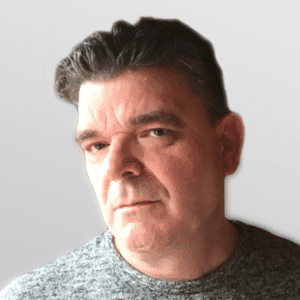
All week, we have been speaking to some of the country’s leading experts on AI.
It is an industry that is in its infancy and one that promises vast wealth for those entrepreneurs who can get in on the ground floor.
Leslie Kanthan, who holds a master’s in Graph Theory, from the LSE, and a PhD in mathematics and computer science from University College London, gave up a comfortable job in corporate at Credit Suisse, in 2018, to take a risk as an entrepreneur. His company TurinTech AI – named in honour of Alan Turing the world-famous wartime mathematician who cracked the German Enigma Code – has been fully operational for a year and Kanthan has key advice from the fruit of his experience.
- Millions – You will need deep pockets to set up in the growing AI business. You will need to invest millions of pounds, over years, before you can even start. “ It is expensive to set up.AI companies setting up, to solve specific problems that are raising tens of millions of pounds in capital. Five to ten million to set up. It is already a couple of million for the Intel server and hardware,” says Kanthan.
- Patience – It can take up to a year to secure big contracts at good-paying companies like banks and financial institutions, many of whom are wary of newcomers to this fledgling industry. “Especially if you are an early-stage start-up, they need to see a lot of validation and proof points, because there is always a risk to them that the start-up, or the business, may not exist.”
- Focus – In convincing clients to give business you must show them a specific case that can improve their business at an efficient cost. “We continue to make the code faster and use fewer resources. That means you can potentially with one company get its code into production quicker and also use half the resources of the machine that they normally would…So, more for your buck, basically.”
- Recruitment – You have to be very savvy about recruitment and be prepared to pay top dollar for the best talent. The foot soldiers in the AI business have PhDs and expect to be paid accordingly. You can only imagine how much poaching goes on. “It is difficult to find talent. In the UK universities are doing a great job of training people…It is still very difficult, a lot of the best talent goes and works for big, well-known, companies, like Google, Facebook and Microsoft. So, enticing them from that kind of organization takes a lot.”
- Investment – Long after the set up you have to keep investing to the tune of millions of pounds in everything from hardware to electricity.
“It is a big thing because; right now there are many things, so, first of all, AI is consuming a lot of power and power here is finite – you can’t just open up a new power station just because you need to put more AI in the space. The second thing is that it is very costly, so if you look at cloud computing it is going through the roof, getting ever more expensive, where infrastructure costs also cost a lot of money. There is a trade-off. Putting in more AI systems and hardware.
For instance, A100 servers require extensive cooling and power supply. So, of course, it is very costly, but the trade-off is if it helps people to get more analytics and insights to build more models to improve their software practice that will be definitely much more beneficial again.”
Want more insights on finance, current events, business, industry and more? Sign up for the Matt Haycox newsletter for fresh updates every week.





